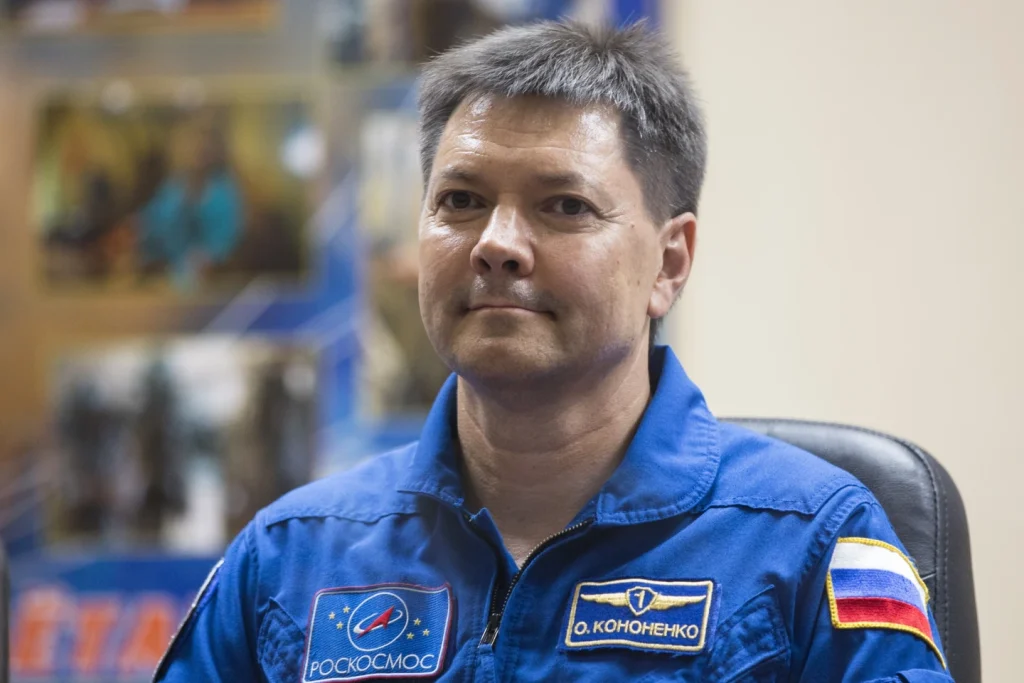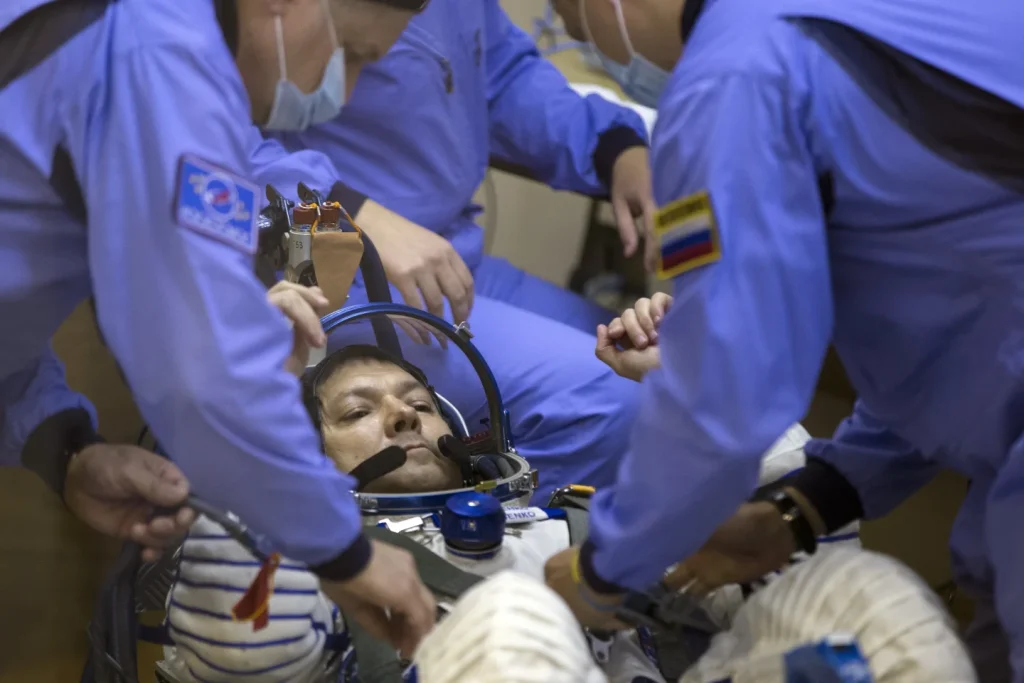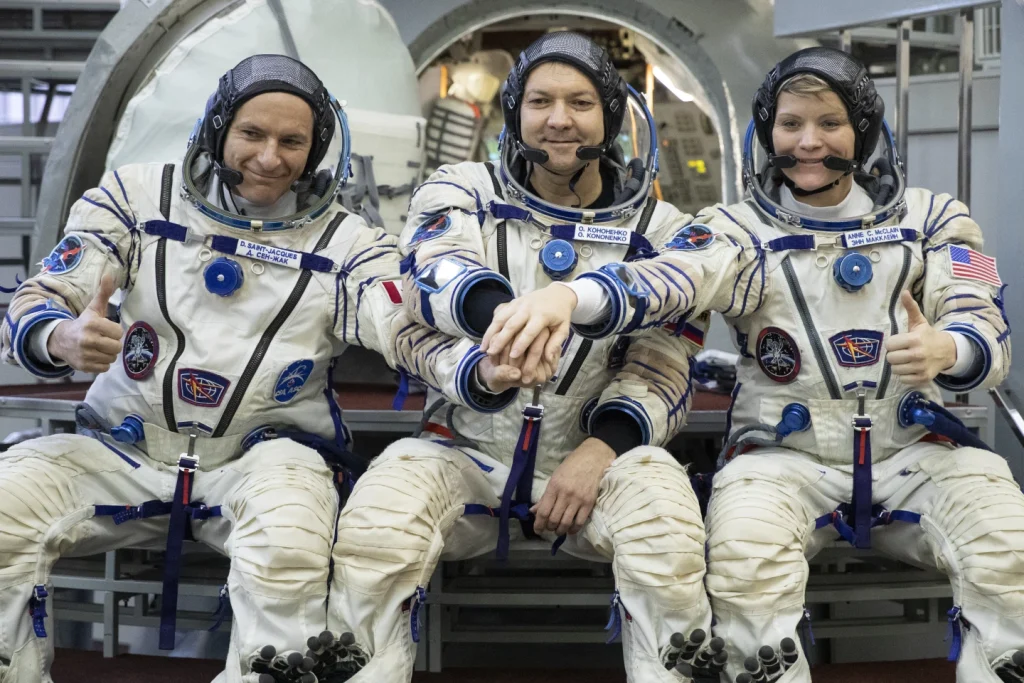The exploration of space has always captivated the imagination of humanity. It represents the pinnacle of human achievement, pushing the boundaries of what is possible.
On Sunday, Russia’s space agency Roscosmos reported a monumental achievement in the realm of space exploration.
Oleg Kononenko, a seasoned Russian cosmonaut, has shattered the world record for the most cumulative time spent in space.
This remarkable feat not only signifies an individual triumph but also serves as a testament to the relentless pursuit of knowledge and the unyielding spirit of human exploration.
At the age of 59, Oleg Kononenko has etched his name in the annals of space exploration history. With more than 878 days and 12 hours spent in the cosmos, he has surpassed the previous record set by his compatriot, Gennady Padalka.
Padalka’s record of 878 days, 11 hours, 29 minutes, and 48 seconds, achieved in 2015, has now been surpassed by Kononenko, marking a significant milestone in the history of space exploration.
Kononenko’s illustrious career in space began with his first journey to the International Space Station in 2008.
Since then, he has embarked on five remarkable journeys, each contributing to his cumulative time spent in space.
His dedication, resilience, and unwavering commitment to the pursuit of scientific discovery have propelled him to the forefront of space exploration.
Kononenko’s record-breaking accomplishment holds profound significance for the field of space exploration.

It underscores the remarkable progress made in human spaceflight and highlights the enduring human quest to unravel the mysteries of the cosmos.
His achievement serves as a testament to the advancements in space technology, the resilience of the human spirit, and the collaborative efforts of nations in the pursuit of scientific knowledge.
Moreover, Kononenko’s feat exemplifies the enduring legacy of human exploration beyond the confines of our planet.
His dedication and perseverance in the face of the challenges posed by space travel inspire future generations to push the boundaries of what is possible and to continue venturing into the unknown.
Long-duration space missions, such as those undertaken by Oleg Kononenko, offer invaluable insights into the effects of extended exposure to the space environment on the human body and mind.
These missions provide a wealth of data that is crucial for understanding the physiological, psychological, and medical implications of space travel.
The knowledge gained from such missions is instrumental in advancing our capabilities for future long-duration space exploration, including potential missions to Mars and beyond.
Furthermore, the dedication and perseverance demonstrated by individuals like Oleg Kononenko serve as a source of inspiration for the scientific community and the general public.
Their unwavering commitment to the pursuit of knowledge and the exploration of the cosmos ignites a collective sense of curiosity and wonder, fostering a deeper appreciation for the marvels of space and the boundless potential of human ingenuity.
In a recent interview with the Russian state news agency TASS, an engineer involved in space missions to the International Space Station (ISS) discussed the meticulous preparation required for each trip due to the station’s constant upgrades.
Despite the challenges, the engineer expressed that being a cosmonaut was a childhood dream come true. “I fly into space to do what I love, not to set records.
I’ve dreamt of and aspired to become a cosmonaut since I was a child. That interest — the opportunity to fly into space, to live and work in orbit — motivates me to continue flying,” he told TASS.
This statement reflects the passion and dedication that individuals in the space industry possess, as they pursue their childhood dreams and contribute to the advancement of space exploration.
The engineer’s words also highlight the importance of personal motivation in achieving success in such a demanding and prestigious field.
In a recent conversation with Russian state news agency TASS, the engineer emphasized the meticulous preparation required for each trip to the International Space Station (ISS) owing to the station’s ongoing upgrades.
Despite the challenges, the engineer expressed profound fulfillment, describing life as a cosmonaut as the realization of a childhood aspiration. “I fly into space to do what I love, not to set records. I’ve dreamt of and aspired to become a cosmonaut since I was a child.
That interest — the opportunity to fly into space, to live and work in orbit — motivates me to continue flying,” the engineer conveyed to TASS.
Notably, Kononenko embarked on his current journey to the ISS on Sept. 15, 2023, alongside NASA astronaut Loral O’Hara and Roscosmos compatriot Nikolai Chub.
This expedition is anticipated to mark a significant milestone, as Kononenko is poised to become the first person to accumulate 1,000 days in space by the conclusion of this mission.
It’s noteworthy that the International Space Station continues to serve as a key arena for close cooperation between the United States and Russia, particularly in light of the strained relations following Moscow’s invasion of Ukraine in Feb.

2022. In a positive development, Roscosmos announced in December that its cross-flight program with NASA, responsible for transporting astronauts to the ISS, had been extended until 2025, underscoring the enduring collaborative efforts in space exploration.
Oleg Kononenko’s record-breaking achievement in space stands as a testament to the indomitable human spirit and the relentless pursuit of knowledge.
His remarkable journey exemplifies the triumph of human ingenuity, dedication, and perseverance in the face of the unknown.
As we celebrate this historic milestone, we are reminded of the enduring legacy of space exploration and the boundless potential that lies beyond the confines of our planet.
Oleg Kononenko’s legacy will continue to inspire future generations to reach for the stars and to push the boundaries of what is possible in the exploration of the cosmos.
